Musicarta Pentatonics Workbook
One-octave Pentatonic Blues
Part Three: Melodic Development
Download the module lesson notes here.
Every blues-styles player has a collection of favourite ‘ornaments’ – decorations to the right hand line, often originally copied but later highly individual from years of use.
Here is a collection of eight or so ways to jazz up the basic right hand pentatonic run.
No MS (= manuscript, written-out music) is offered for this module, on the grounds that it would only complicate the issue and delay the start of the practice necessary to make these little decorations available in performance.
Some rhythmic variation has also crept into this section*. See if you can hum/sing along with Mister Musicarta – it really helps show your hand what’s wanted.
1. A crushed note on the way up
The basic crushed note, on the classic blues #4/¨5 semitone.
2. Improvisation fingering
Improvisers don’t usually have the luxury of planning their fingering like classical players, so turning the fingers over instead of passing them under the thumb to keep going up the keyboard is an essential trick.
3. Left hand syncopation*
Count along: One two AND three four One two AND three four.This left hand rhythm is quite capable of supporting any right hand improvisation.
Not an essential development at all; Mister Musicarta’s left hand was just doing its own thing, so it got covered. You could be using just the on-the-beat ‘pulse’ note or the ‘official’ performance left hand “dut-de-der” figure.
4. A crushed note on the way down
The crushed note would naturally fall on the D on the way
down (count 3) so, as before, the fingering needs revisiting so fingers 2 and 3
are available.
5. Anticipating the right hand run*
Anticipation has a way of creeping in and infecting any and all straight counts.
Note that you can practice all these rhythmic tricks away from the keyboard, just tapping your (left) foot on the beat (probably counts 1 and 3) and practicing the foxy right hand rhythms on your desktop.
Progress to fingering a ‘virtual piano’ on your desktop and try to sing along too.
6. Rolling the right hand
Anticipating the start of the run leads naturally to keeping
the thumb playing more of the in-between “and” counts.
7. Descending grace note figures (1)
Once you’ve padded out the ascending run, you’ll feel the need to do something for the descending run too, possibly with these two-note grace note figures.
Notice that they are (of course) pentatonic scale tones, too.
The demonstration takes it to extremes, with figures on the fifth, fourth and minor third. You wouldn’t normally decorate all three. Or would you?
8. Descending grace note figures (2)
The last ornament is really a two-note ‘crushed note’, and one of my blues favourites – octave and ¨5 semitone crushed down onto the fourth.
Practice these figures one or two at a time and keep coming back to remind yourself of the options. Really, only hundreds of repetitions make them truly your own.
Expect to diverge off into pentatonic improvisations as you practice, especially if you can jeep the syncopated two-note left hand (Section 3) going.
When you're ready, go on to Page Four of this free Musicarta Pentatonics Workbook sample module.
|
THE MUSICARTA PENTATONICS WORKBOOK video course Sample pagesThe Videos |
|
OUT NOW! |
THE MUSICARTA BEAT & RHYTHM WORKBOOK At last! An effective approach to keyboard rhythm & syncopation skills. Learn more! |
ONLY $24.95! |
|
THE MUSICARTA PENTATONICS WORKBOOK video course Sample pagesThe Videos |
The MusicartaA methodical approach to keyboard syncopation for
|
PUBLICATIONS
exciting keyboard
creativity courses
CHORDS 101
WORKBOOK

~HANON~
video course

Musicarta
Patreon
PENTATONICS
WORKBOOK
video course

Creative Keyboard
video course

BEAT AND RHYTHM
WORKBOOK
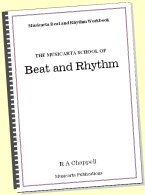
- Volume 1 -

12-BAR PIANO
STYLES WORKBOOK
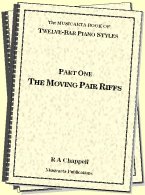
MUSICARTA MODES
WORKBOOK
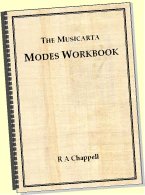
PIANO STYLE
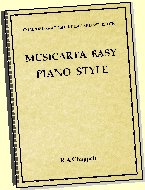
CANON PROJECT
video course
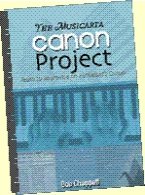
VARIATIONS
video course
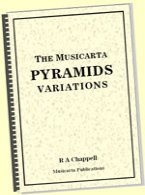
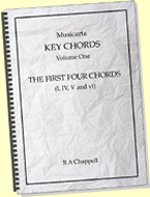
- Piano Solo -
video course
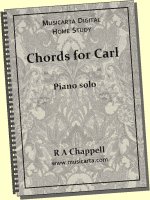
- Piano Solo -


YouTube playlists





 THE LOGO
THE LOGO
